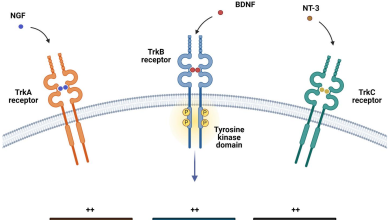Effective Therapy for Autism in Hong Kong: A Comprehensive Review

Introduction
Autism Spectrum Disorder (ASD) is a complex neurodevelopmental condition that affects social interaction, communication, and behavior. In Hong Kong, as awareness and understanding of autism grow, the demand for effective therapeutic interventions has increased. Families and professionals are increasingly seeking evidence-based therapies to support individuals with autism in reaching their full potential. This article provides a comprehensive review of effective therapy for autism in Hong Kong, examining various approaches, their availability, and the impact they have on individuals with autism and their families.
Understanding Therapy for Autism
Therapeutic interventions for autism aim to address the core symptoms and associated challenges of the disorder. Effective therapy can improve communication, social skills, and behavioral functioning, ultimately enhancing the quality of life for individuals with autism. Therapy typically involves a combination of behavioral, educational, and developmental approaches tailored to the individual’s needs.
- Applied Behavior Analysis (ABA)
Overview: Applied Behavior Analysis (ABA) is one of the most widely used and researched therapies for autism. ABA focuses on understanding and modifying behavior through reinforcement techniques. It is grounded in the principles of behaviorism, which emphasize the role of environmental factors in shaping behavior.
Implementation in Hong Kong: ABA therapy is available through various private clinics and specialized centers in Hong Kong. Institutions such as the Hong Kong Autism Association and private practices offer ABA services. These programs often include one-on-one sessions with trained therapists, as well as parent training to help reinforce skills at home.
Effectiveness: Research supports the effectiveness of ABA in improving communication, social skills, and adaptive behavior. Many studies have shown that ABA can lead to significant improvements in behavior and functioning for individuals with autism. In Hong Kong, parents and caregivers often report positive outcomes, including improved social interactions and academic performance.
Challenges: Despite its benefits, ABA therapy can be intensive and time-consuming. Some families may find it challenging to commit to the required frequency of sessions. Additionally, the cost of ABA therapy can be high, creating financial barriers for some families.
- Speech and Language Therapy
Overview: Speech and language therapy focuses on improving communication skills, including speech, language, and social communication. This therapy can address difficulties with speech articulation, language comprehension, and social interaction.
Implementation in Hong Kong: Speech and language therapy is available through public services, private clinics, and educational institutions in Hong Kong. The Hong Kong Speech Therapists Association provides resources and directories for finding qualified speech therapists. Services are often integrated into special education programs and early intervention services.
Effectiveness: Speech and language therapy can be highly effective in improving communication skills. For individuals with autism, therapy can help with verbal communication, understanding language, and using alternative communication methods if needed. Parents and teachers often observe significant improvements in communication and social interaction as a result of therapy.
Challenges: Access to speech and language therapy can be limited by waiting times for public services and the cost of private therapy. Additionally, finding a therapist with experience in autism can be challenging, and the effectiveness of therapy may vary depending on the therapist’s expertise and the individual’s specific needs.
- Occupational Therapy
Overview: Occupational therapy (OT) focuses on developing skills necessary for daily living and functioning. For individuals with autism, OT may address sensory processing issues, fine motor skills, and daily life skills such as self-care and organization.
Implementation in Hong Kong: Occupational therapy is available through public hospitals, private clinics, and specialized centers. Organizations like the Hong Kong Occupational Therapy Association provide resources for finding qualified therapists. OT services are often included in educational programs and early intervention services.
Effectiveness: Occupational therapy can be effective in helping individuals with autism develop skills for daily living and improve sensory processing. Many families report improvements in areas such as self-care, motor skills, and overall functioning as a result of OT. Therapists often work with families to create customized interventions that address specific challenges.
Challenges: Similar to other therapies, access to occupational therapy can be affected by waiting times and cost. Additionally, the effectiveness of therapy may depend on the individual’s engagement and the therapist’s experience in working with autism.
- Social Skills Training
Overview: Social skills training focuses on teaching individuals with autism how to interact effectively with others. This therapy often involves structured group sessions where participants practice social interactions and receive feedback.
Implementation in Hong Kong: Social skills training programs are offered by various organizations, including the Hong Kong Autism Association and private clinics. These programs may be conducted in group settings or as part of individual therapy. Some programs are integrated into school curricula or community activities.
Effectiveness: Social skills training can lead to improvements in social interactions, including making friends, understanding social cues, and engaging in appropriate behaviors. Many individuals with autism benefit from the structured practice and feedback provided in social skills training programs.
Challenges: The effectiveness of social skills training can vary depending on the program and the individual’s level of engagement. Additionally, group-based programs may not be suitable for all individuals, and finding a program that matches the individual’s needs and preferences can be challenging.
- Developmental and Relationship-Based Therapies
Overview: Developmental and relationship-based therapies, such as the DIR/Floortime model, focus on building social and emotional skills through naturalistic play and interactions. These approaches emphasize the importance of building strong relationships and understanding the individual’s emotional needs.
Implementation in Hong Kong: Developmental and relationship-based therapies are offered by some private clinics and specialized centers. The DIR/Floortime model, for example, is used by therapists trained in this approach to support the development of emotional and social skills through play-based interactions.
Effectiveness: These therapies can be effective in promoting emotional and social development. By focusing on building relationships and understanding the individual’s unique needs, these approaches can help improve social skills, emotional regulation, and overall quality of life.
Challenges: Developmental and relationship-based therapies may require a more individualized approach and may not always be readily available. Additionally, these therapies can be less structured compared to other interventions, which may make it challenging to measure progress and outcomes.
- Parent Training and Support
Overview: Parent training programs provide families with the skills and knowledge needed to support their child’s development. These programs often include strategies for managing behavior, supporting communication, and implementing therapeutic techniques at home.
Implementation in Hong Kong: Parent training programs are offered by various organizations, including the Hong Kong Autism Association and private clinics. These programs may include workshops, one-on-one coaching, and online resources.
Effectiveness: Parent training can be highly effective in empowering families to support their child’s development and manage challenges effectively. Many families report that parent training has helped them better understand autism and implement strategies that improve their child’s behavior and functioning.
Challenges: Access to parent training programs can be limited by availability and cost. Additionally, the effectiveness of training may depend on the family’s ability to implement strategies consistently and adapt them to their individual needs.
Future Directions and Recommendations
As the field of autism therapy continues to evolve, several key areas warrant attention to enhance the effectiveness and accessibility of therapeutic interventions in Hong Kong:
- Expanding Access to Services: Increasing the availability of therapy services, particularly in underserved areas, is essential. Expanding public funding and support for autism therapies can help reduce waiting times and make services more affordable for families.
- Enhancing Training for Therapists: Providing ongoing training and professional development for therapists can improve the quality of care and ensure that interventions are evidence-based. Specialized training in autism and related therapies is crucial for effective service delivery.
- Promoting Integrated Approaches: Combining different therapeutic approaches, such as ABA, speech therapy, and occupational therapy, can provide a more comprehensive support system. Integrated approaches that address multiple aspects of autism can lead to better overall outcomes.
- Supporting Research and Innovation: Investing in research and innovation can lead to new insights and improvements in autism therapy. Collaboration between researchers, practitioners, and advocacy groups can drive progress and enhance the effectiveness of interventions.
- Fostering Community Engagement: Engaging with community organizations and support groups can help raise awareness, reduce stigma, and provide additional resources for families. Community-based initiatives can complement formal therapy services and support a more inclusive society.
Conclusion
Effective therapy for autism in Hong Kong encompasses a range of approaches, each with its own strengths and challenges. From Applied Behavior Analysis (ABA) to speech and language therapy, occupational therapy, and developmental models, a diverse array of interventions is available to support individuals with autism and their families.
While significant progress has been made in providing effective therapies, ongoing efforts are needed to address challenges related to access, cost, and the availability of trained professionals. By expanding services, enhancing training, and promoting integrated approaches, Hong Kong can continue to improve the quality of autism therapy and support individuals with autism in reaching their full potential. Through a collaborative and informed approach, the future holds promise for creating a more supportive and inclusive environment for individuals with autism and their families.








